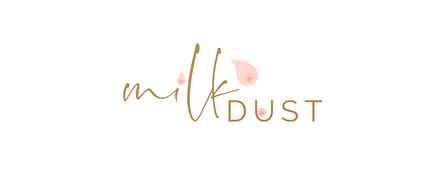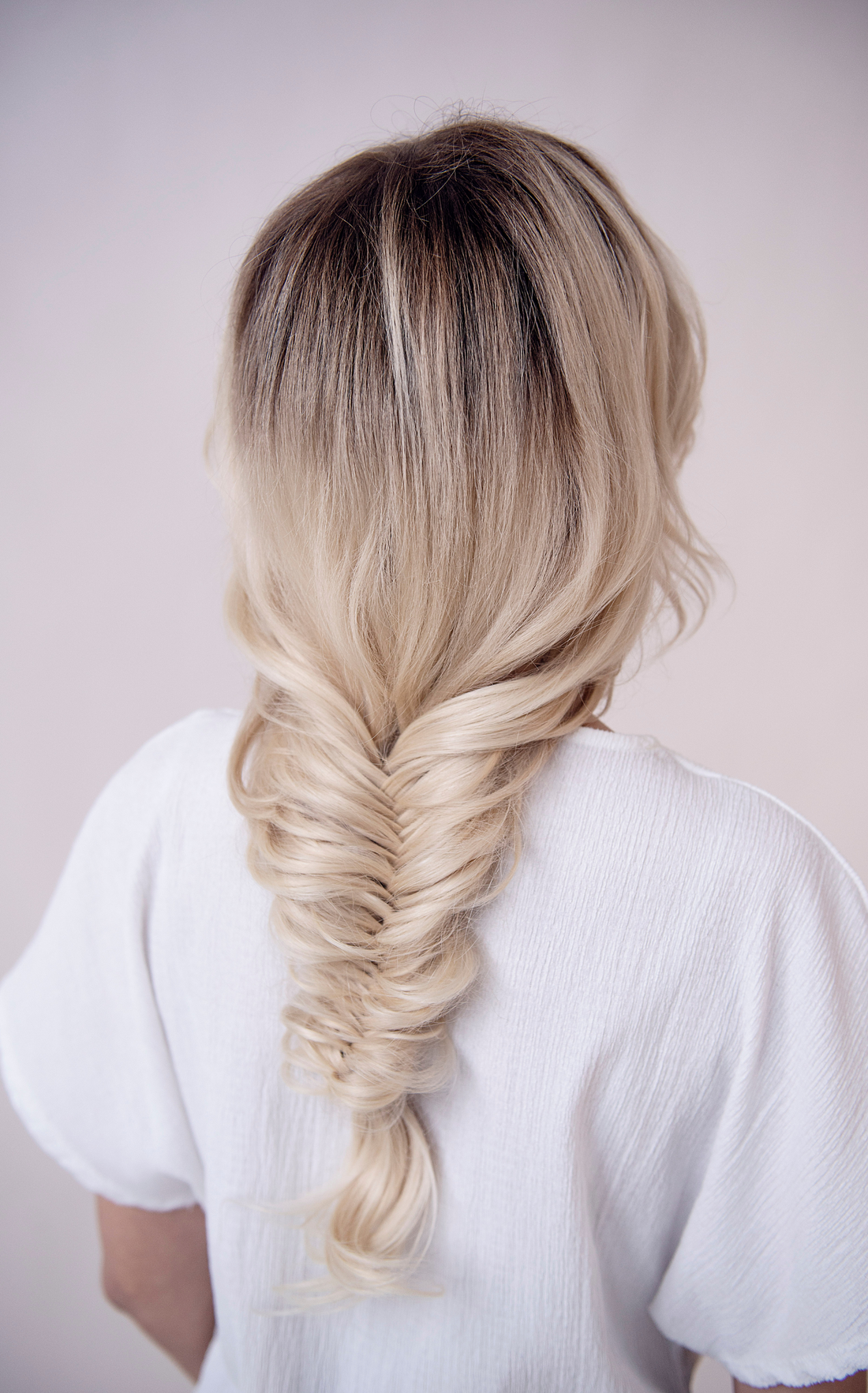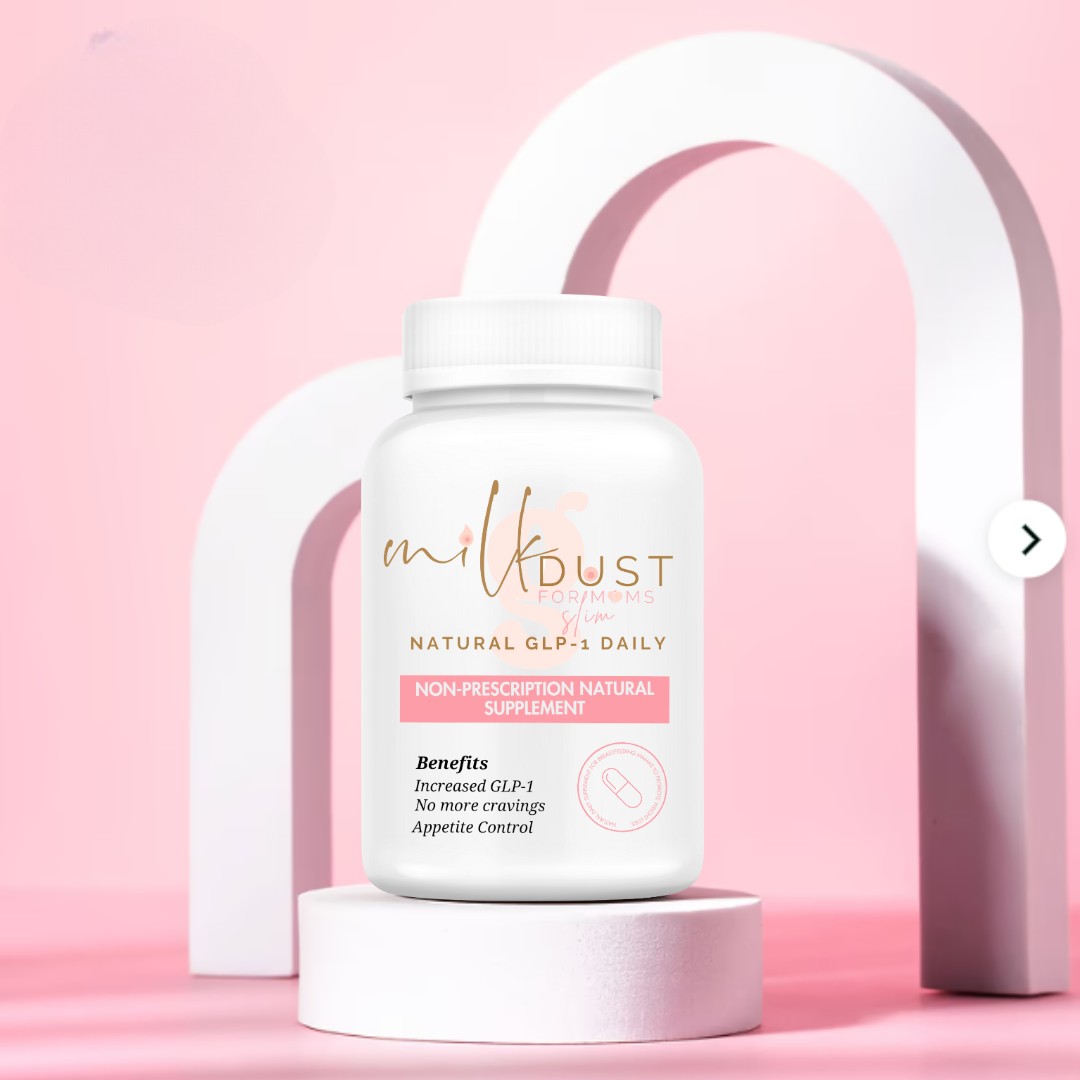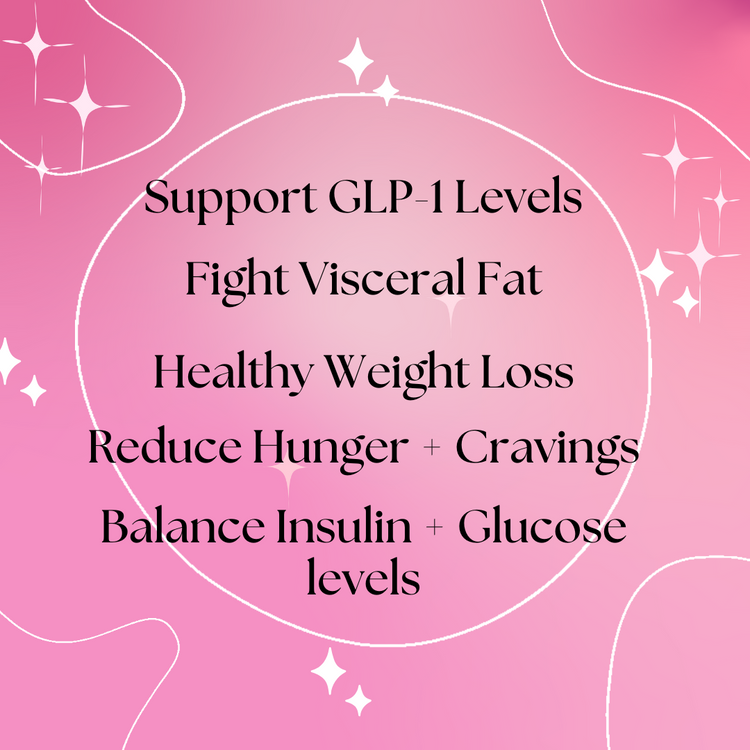I've had four babies now, so each time I've experienced postpartum hair loss, and it isn't fun. You have to go from lots of hair, to watching it all fall out months after baby arrives. For me, I didn't really experience hair loss until I was over 6 months postpartum. For others, it can be sooner or later, and it all depends on what is causing your hair loss. Some people are more prone to hair loss than others usually because of genetics. Hormone fluctuations and nutrient-needs are the main factors in hair loss, and if you can find the right supplement, you can stop all your postpartum hair loss. I had more severe postpartum hair loss after my fourth baby, and it seemed to be the worse I ever experienced. It took me a lot of trial and error to really get a handle on my hair loss, but I was able to figure out how to fix it! I want to help new mothers stop their severe postpartum hair loss as well, so hopefully waht worked for me, will work for you!
What didn't work for me and my postpartum hair loss:
I did a lot of google searching to solve my postpartum hair loss, and here are the remedies I tried, but didn't work. Utlimately, it was this supplement that worked for me, but here's what I tried:
Taking my prenatal vitamins:
I tried to just keep taking my prenatal vitamin, but that did not work. I think the prenatal vitamin that I had didn't have Biotin in it, which is the main ingredient in the supplement that did work for me, so I think that is why. I was hoping that the extra nutrients and vitamins would help my hair come back, but after a few weeks nothing changed. I was hoping that during the postpartum period, I could just stay on my prenatal vitamin, but that didn't stop the extra hairs from just falling out.
Eating more collagen:
I thought collagen is supposed to help with hair skin and nails, and it can, but if you are suffering from severe postpartum hair loss, it doesn't seem to be enough. The Milk Dust Mermaid Hair has both collagen and Biotin, and I think it is the combination of nutrients that really helped my hair start growing back and not falling out.
Shampoos:
I tried a few shampoos that were said to help with postpartum hair loss, and I didn't notice a dfiference either. Maybe if your hairloss isn't severe, it will work for you, but for me, my hair was falling out in chunks, so the shampoo wasn't strong enough to do anything.
Understanding Postpartum Hair Loss
After welcoming my new baby, I was excited for all the firsts that would come our way. But there was one 'first' I wasn't prepared for: clumps of hair clogging the shower drain, turning what should have been a relaxing shower into a moment of panic. Like many new moms, I found myself facing severe postpartum hair loss, a condition that seemed both alarming and bewildering. Why, at a time when I was supposed to be overjoyed, did my reflection in the mirror serve as a reminder of yet another change I wasn't ready for?
The truth is, severe postpartum hair loss is a common aftermath of the hormonal roller coaster brought on by pregnancy and childbirth. During pregnancy, elevated levels of hormones such as estrogen and progesterone give us that coveted thick and luscious hair, only for levels to plummet post-birth. This sharp hormonal shift pushes more hair than usual into the shedding phase of the hair growth cycle, leading to what many refer to as excessive shedding. But here's the good news: this is a temporary condition. As our bodies gradually return to their pre-pregnancy hormonal balance, so too will the state of our hair health.
Understanding that severe postpartum hair loss is largely due to hormonal changes and the natural transitioning of hair follicles through their growth cycle phases has been a game changer for me. It’s a reassurance that this, too, is just a phase in the incredible journey of motherhood. So, to all the new moms out there experiencing this, know that you're not alone, and this is only temporary. Our locks are simply on their own journey of change, much like us.
Why Milk Dust Mermaid Hair worked for me:
Milk Dust Mermaid Hair has a very specific formula that worked really well for me, and helped my postpartum hair loss completely stop. For some moms, they naturally lose hair for a while, then they stop losing hair, but mine kept going. I also wanted to make sure that I could stop it from falling out, and help it grow back! I really felt like Mermaid Hair did this for me. There are nutritional deficiencies that can cause hormonal imbalances, so the Milk Dust Mermaid Hair seemed to solve those issues for me. If you have a thyroid condition, or any medical conditions, you might need to chat with a healthcare provider, but I found this supplement to be the best option.
Milk Dust Mermaid Hair Formula For Postpartum Hair Loss:
Biotin:
Clinical studies show that biotin supplementation helps with hair and nail growth. This study found that "We found 18 reported cases of biotin use for hair and nail changes. In all cases, patients receiving biotin supplementation had an underlying pathology for poor hair or nail growth. All cases showed evidence of clinical improvement after receiving biotin." Biotin (also known as vitamin B7 or vitamin H) is a water-soluble vitamin that serves as an essential cofactor for carboxylase enzymes in multiple metabolic pathways.
Collagen:
Collagen is used to help with hair growth as well, but there aren't as many studies supporting it as a hair growth supplement. This study does however go over collagen supplementation to reduce hair shedding, and it found that there are positive signs that various collagen peptides do help with hair loss and shedding.
Horsetail:
Research suggests that horsetail may also benefit your hair, likely thanks to its silicon and antioxidant content.
First, antioxidants help reduce micro-inflammation and the aging of hair fibers caused by free radicals. Second, a higher silicon content in hair fibers results in a lower rate of hair loss, as well as increased brightness. For example, in a 3-month study in women with self-perceived hair thinning, those who took two daily capsules containing dried horsetail and other ingredients had increased hair growth and strength compared with a control group.
Vitamin D3:
Regulates the amount of calcium and phosphorus in your body, both necessary for for healthy hair.
Vitamin D helps hair follicles grow, and low levels can lead to reduced hair growth and increased shedding.
Hair cycle: Low vitamin D levels can shorten the anagen (growth) phase of the hair cycle and lengthen the telogen (resting) phase.
Vitamin D deficiency can weaken the dermic layer, which holds hair in the skin, making hair more likely to fall out.
Magnesium Oxide:
Magnesium helps to regulate calcium levels, which is important for hair follicle health and growth. It also helps to improve circulation and reduce inflammation, which can promote a healthy scalp environment for hair growth.
Iron:
Forms hemoglobin, the protein in red blood cells that carries oxygen to your tissues.
L-Cysteine:
This amino acid supports healthy hair growth, strengthens your hair, and enables it to withstand the daily rigors of manipulation and styling.
Cysteine helps reverse hair loss as it transports two essential minerals [iron and zinc] that are vital nutrients for hair regrowth.
Zinc:
-
Hair follicle health: Zinc is essential for keratin production, which is a key component of hair follicles. Zinc also helps hair follicles recover and prevents them from regressing.
-
Hair loss conditions: Zinc deficiency is a major factor in alopecia areata and telogen effluvium. Some research suggests that men with male pattern baldness have lower zinc levels than those without.
- Hair shedding: Zinc deficiency can cause hair to become brittle and shed
The Milk Dust Metabolism formula has all of this in it, which is why I think it worked so well for me. I needed a little bit of everything because I had severe postpartum hair loss.
Combining Milk Dust Protein Powder with Milk Dust Mermaid Hair:
I combined my Milk Dust shakes with taking my Milk Dust Mermaid Hair, and I noticed so much improvement so fast. My hair was growing longer faster, and my nails were growing so long too. I felt energized, my sugar cravings were gone, and I was able to stay focused on eating healthy and getting back in shape. I felt like every day, my shakes were making me healthier because Milk Dust has hand-picked nutrients just for postpartum mamas who are breastfeeding, and a milk-boosting blend that kept my milk supply up while I was losing weight.
It made me so happy to finally feel like my body is getting back on track, and my hair was coming back. I highly recommend taking the Mermaid Hair with your Milk Dust shakes, so you can fully support your hormone levels and nutrient needs while breastfeeding. I think the Milk Dust was paramount to helping my hair grow back faster, while the Mermaid Hair was what stopped it from falling out. The combination was exactly what I needed to stop my severe postpartum hair loss.
What To Eat To Get Your Hair To Grow Back Faster
Eating the right nutrition plan and a healthy diet is so important while breastfeeding, and it can really help your hair grow back faster to replenish it from all the shedding. Once you get the shedding to stop, it really helps to get your hair to grow faster, and with the right nutrition plan you can help your hair grow back faster. This diet plan is for breastfeeding mamas to get their nutrition back on track, and it is perfect for helping you get your hair to start growing back.
Best Foods For Hair Growth:
For healthy hair growth, a balanced diet rich in essential nutrients can make a big difference. Here are some of the best foods to consider:
1. Protein-Rich Foods
- Protein Powder: Milk Dust protein powder is amazing for postpartum nutrition, lactation and helping with hair growth. It is full of the amino acided necessary, with the extra vitamins and nutrients postpartum mamas need.
- Eggs: A great source of protein and biotin, both of which are essential for hair growth. Biotin helps produce keratin, the main protein in hair.
- Fish (especially salmon, mackerel, and sardines): Rich in omega-3 fatty acids, which can improve scalp health and reduce hair loss.
- Lean meats (like chicken and turkey): Provide protein and iron, which supports strong hair follicles.
- Greek yogurt: High in protein and contains vitamin B5, which may improve blood flow to the scalp.
2. Iron and Zinc-Rich Foods
- Spinach and other dark leafy greens: These are high in iron and vitamins A and C, which can help keep hair healthy.
- Lentils: A good plant-based source of iron, zinc, and protein.
- Oysters: High in zinc, which helps hair repair and growth.
3. Vitamin C and E-Rich Foods
- Citrus fruits: Oranges, lemons, and grapefruits are high in vitamin C, which is essential for collagen production (a structural component of hair).
- Berries (like strawberries, blueberries, and blackberries): Rich in antioxidants and vitamin C.
- Nuts and seeds (especially almonds and sunflower seeds): High in vitamin E, which can protect hair from environmental stress and damage.
4. Vitamin A-Rich Foods
- Carrots, sweet potatoes, and pumpkins: High in beta-carotene, which the body converts to vitamin A. This helps produce sebum, a natural oil that keeps the scalp and hair healthy.
- Kale: Another source of beta-carotene and a host of other vitamins.
5. Vitamin D and B-Vitamin-Rich Foods
- Fortified milk and yogurt: These are often enriched with vitamin D, which may play a role in hair follicle health.
- Whole grains and avocados: Rich in B vitamins, like B7 (biotin) and B12, which contribute to hair strength and growth.
6. Healthy Fats
- Avocados: Provide healthy fats and vitamin E, which supports scalp health.
- Walnuts and flaxseeds: Contain omega-3 fatty acids and are great for supporting hair health and hydration.
7. Water-Rich Foods
- Cucumbers, melons, and berries: Staying hydrated is essential for a healthy scalp and to prevent dry, brittle hair.
Including these foods regularly in a balanced diet, along with staying hydrated, will promote healthier hair growth and strength over time.
Hormones and Hair: What's the Connection?
I vividly recall the days during my pregnancy when my locks felt fuller and more luscious than ever, thanks largely to the surge of pregnancy hormones like estrogen coursing through my veins. It's fascinating, really, how these hormonal changes contribute to a much-celebrated thickness and growth in hair, pushing more hair follicles into the growing phase, or anagen phase, and fewer into the shedding phase, or telogen phase. Yet, what goes up must come down - and post-birth, as these estrogen levels plummet back to normal levels, the dramatic shift sends shockwaves through our hair cycles.
Phases of Your Hair Cycle During Postpartum
Postpartum, our bodies are a whirlwind of changes, and so is our hair, cycling through anagen, catagen, and telogen phases. Let me take you through this journey. During pregnancy, the flood of estrogen keeps our hair in the anagen or growing phase longer, blessing us with thicker, fuller hair. Post-birth, as hormone levels plummet back to normal, our hair shifts into the catagen phase, a transition phase, before entering the telogen phase, a resting phase where hair falls out. Here, we meet telogen effluvium, a fancy term for excessive hair shedding experienced by new moms. This isn't just the usual few strands; it's clumps clogging the shower drain, a stark embodiment of postpartum hormonal shifts. It's a temporary phase, though intense, signifying that our bodies are recalibrating after the hormonal rollercoaster of pregnancy.











